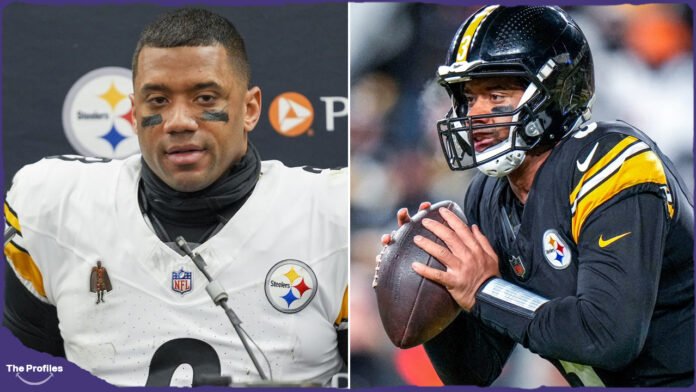Even though they have their sights set firmly on the future, the New York Giants have made a daring, two-pronged move by adding two seasoned signal-callers to their roster: Russell Wilson and Jameis Winston. Insiders reveal that New York is still in the running to select a young quarterback with its desired No. 3 overall pick in the 2025 NFL Draft, even though the veteran contracts provide an instant bridge to competitiveness following a disappointing 3-14 year.
The quarterback dilemma facing the Giants has been a contentious issue for a long time. GM Joe Schoen and coach Brian Daboll finally decided on a more cautious approach after splitting from Daniel Jones and considering high-profile free signings like Aaron Rodgers and Matthew Stafford. The team has added a seasoned presence with postseason experience and deep-ball accuracy by signing former Super Bowl winner Russell Wilson to a one-year contract with a $10.5 million guaranteed and incentives that may increase the total to $21 million. At the same time, Jameis Winston’s two-year contract (for about $8 million) provides depth and a different approach that could help train a future franchise quarterback.
According to an insider, Wilson and Winston are both temporary fixes. “They allow us time to develop the rookie quarterback that we think will be the long-term solution.”
The Giants’ plan is far from finished, despite the excitement around these seasoned additions. The team’s readiness to combine seasoned veterans with a high draft pick demonstrates its dedication to rebuilding at quarterback. New York is keeping its options open, even if it means selecting a quarterback early and rearranging its depth chart after the rookie adjusts to the NFL, with prospects like Cam Ward of Miami and Shedeur Sanders of Colorado apparently on the radar.
It is anticipated that veterans like Winston, who is renowned for his aggressive downfield play despite some inefficiencies, and Wilson, who saw a comeback in Pittsburgh despite a shaky finish, will serve as mentors in addition to leading on the field. They are viewed as transitional players who can temporarily stabilize the offense while mentoring a rookie.
According to a person acquainted with the team’s internal operations, “the goal is to win early games while our draft pick learns the ins and outs of our system.”
These financial decisions are in line with the Giants’ overarching plan of prudent spending restrained by long-term investment. The organization is able to get an experienced quarterback without taking on long-term risk by signing Wilson to a comparatively small one-year contract. Similar flexibility is offered by the Winston agreement, which is set up with performance incentives. The team has the financial resources to change course, possibly letting go of one of the veterans and reallocating salary cap space to support young players’ development if a rookie quarterback proves to be the team’s clear future starter.
This financial restraint is essential as the Giants attempt to rebuild the offense as a whole, not just the quarterback position. Establishing a culture of mentorship and competition that can close the gap between short-term success and long-term, sustainable growth is still the organization’s core goal.


